Match Report | Jock Stein 1960-64
The ascension of Dunfermline Athletic to their pinnacles of success during the 1960`s began on the 14 March 1960 when Jock Stein arrived at East End Park to take on his first managerial position.
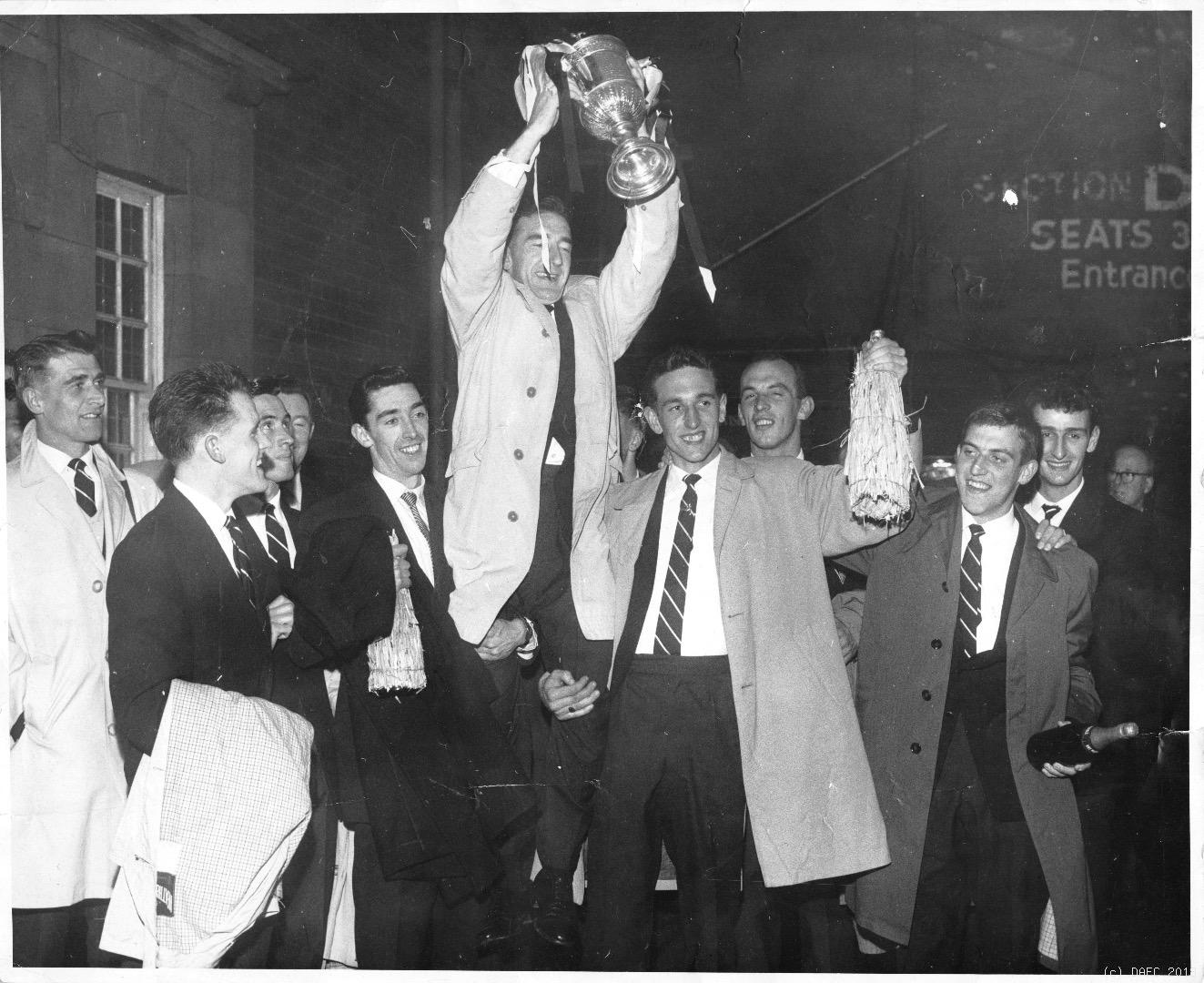
His words to the assembled newsmen were: "The team is in a precarious position. I have no magic wand but I will do everything in my power to save them from relegation". By the time Stein took over for the last six games of the season Dunfermline lay in the relegation zone with only Stirling Albion and Arbroath below them. The prospect that in just over a year European football and the glamour games that such competitions brought, were to be destined for Dunfermline truly seemed to require the services of a member of the Magic Circle.
The wizardry started as he recorded six straight wins defeating Celtic 3-2 in his very first game in charge. His personal powers were evident considering he made only one change in team selection - George Miller stepping in for the last five matches after an injury to Jimmy Wardhaugh against Celtic.
During the close season of 1960, Stein gave notice of his intentions to foster local talent and Jackie Sinclair and Willie Callaghan were two of his early catches. Experienced Tommy McDonald and Willie Cunningham were bought from Leicester City as Stein tackled the main priority - to consolidate the Pars status as a First Division club.
The 60-61 season saw the Pars finish in twelfth position, but the Scottish Cup run that started at Berwick in January progressed with a win at Stranraer. There were limited radio updates in those days and when the BBC Grandstand teleprinter popped up with the Cup Third Round result - Aberdeen 3, Pars fan`s hearts sunk only to be elated when the figure 6 followed Dunfermline. Stein went on to guide his side to the final and historically won Dunfermline`s first Scottish Cup in a replay.
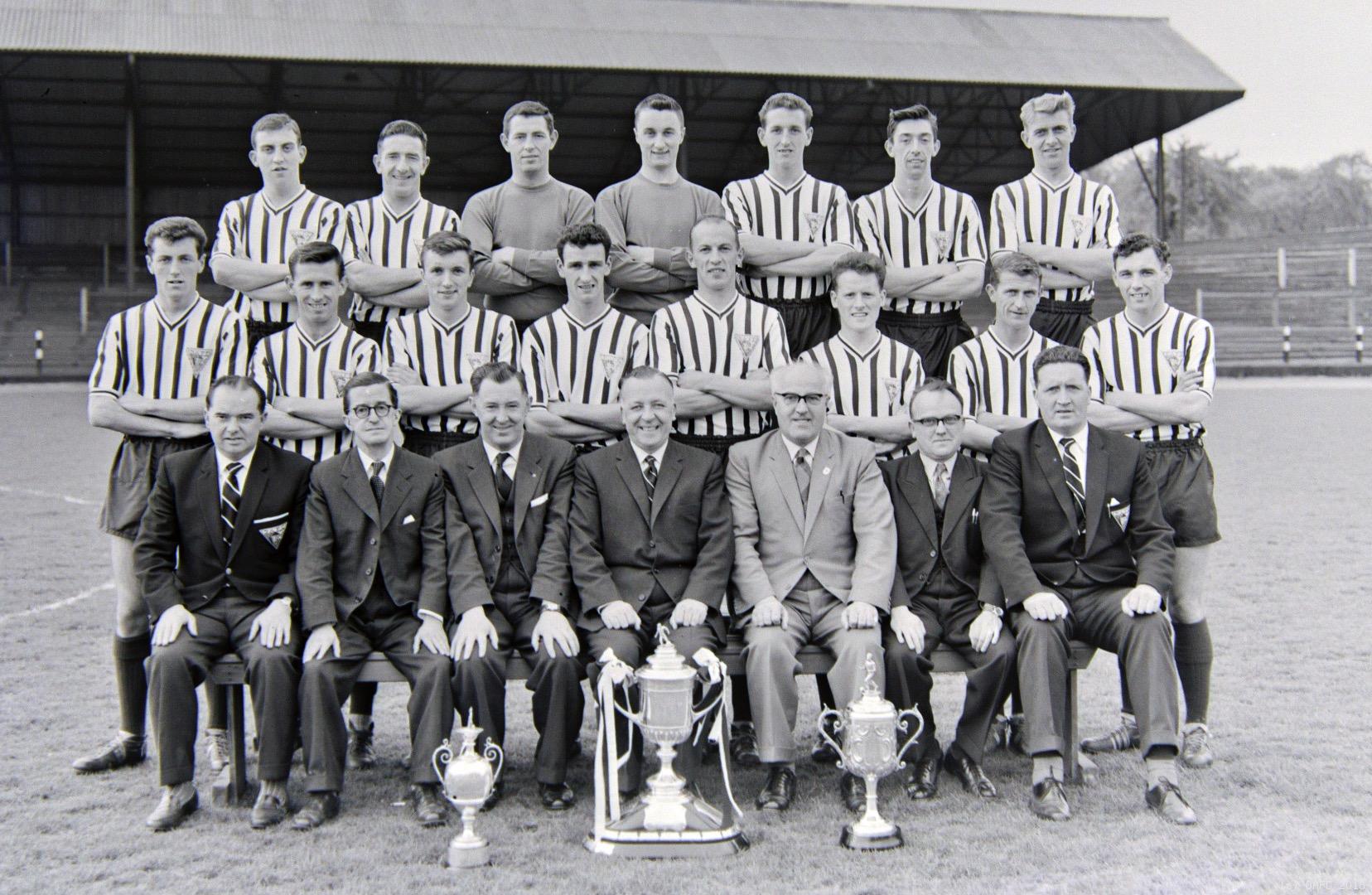
Stein`s next role was to take Dunfermline into major European competition. It is amazing to think that the Fifers were playing in Europe before Celtic and Liverpool. The Big Man`s foundation was to build a decade where the name of Dunfermline Athletic became as well known to the locals in such far off places as Athens, Copenhagen and the Costa Brava as by the Scots who travelled their for their annual holiday.
Playing 42 matches in Europe between 1961 and 1970, their greatest success was reaching the last four of the 1968-69 European Cup Winners Cup in such distinguished company as Barcelona, Slovan Bratislava and FC Cologne.
Dunfermline qualified for the Fairs Cup in Season 62-63 and having drawn Everton, the "Bank of England" team, with such stars as Billy Bingham, Alex Young, Brian Labone and Gordon West, Stein`s motivation to his players was merely to walk in to the changing room and pin up the Englishmen`s press comments about the "country hicks". Having lost by one goal in Liverpool, the return a week later at East End Park saw goals from Miller and Melrose knock out the Toffees and earn a second round tie against Valencia.
A four nil defeat in Spain looked likely to end the Pars chances but Stein introduced teenagers Alex Edwards and Jackie Sinclair for the return and unbelievably his side had levelled the tie by half time. Unfortunately, the second half only produced one goal aside and a play off in Lisbon eliminated the Pars 1-0.
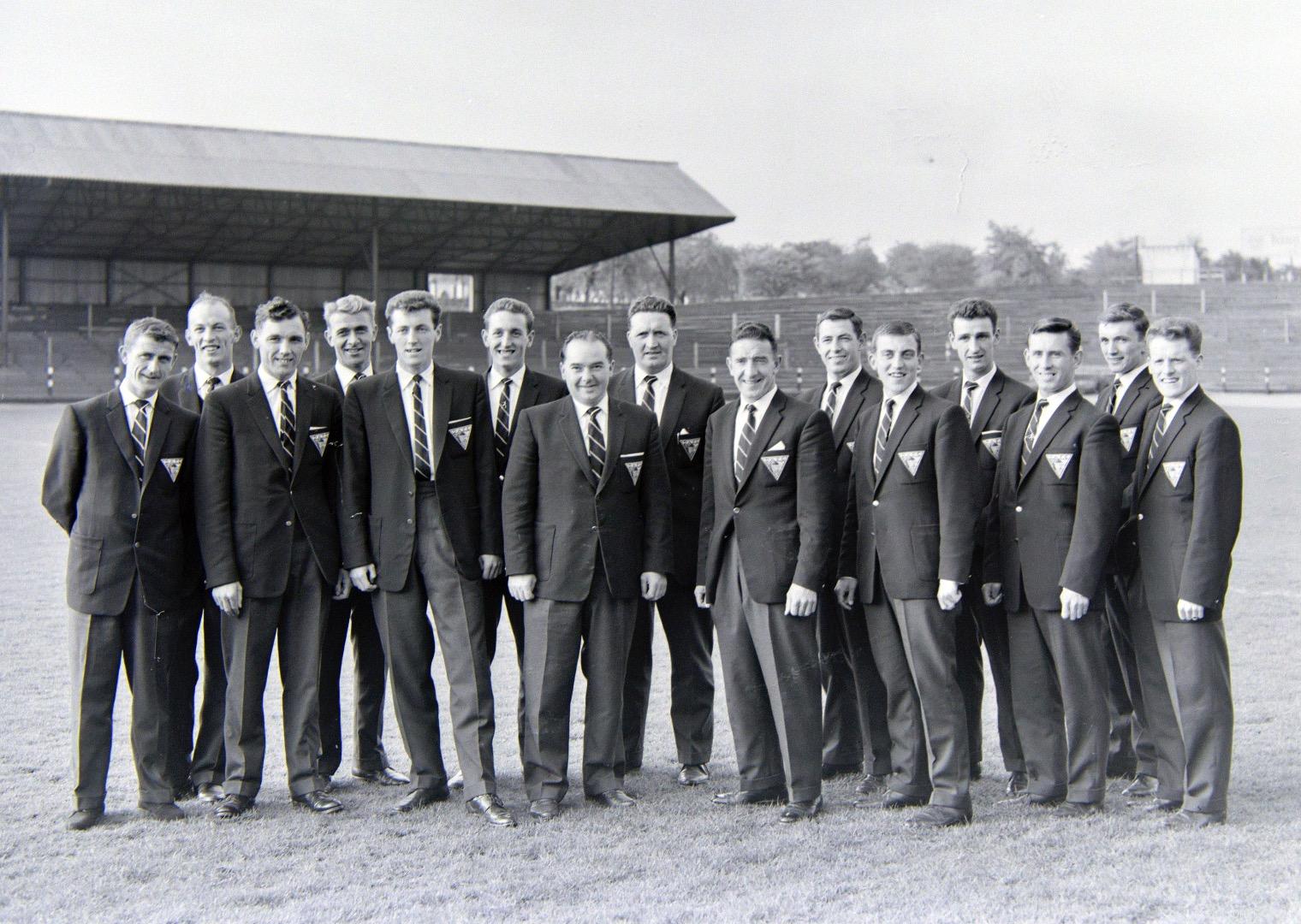
Stein`s success began to make obvious that he was too big a fish for Dunfermline. He had the winning touch. He was a football thinker, magnificent motivator, a great football talker and such talents were worth more than the small support that Dunfermline attracted. On 27 February 1964, at the request of Mr Stein, it was announced that the Board had agreed to terminate his contract at the end of the season.
Willie Cunningham took over as Manager and continued the momentum that Stein had built by taking the Pars to European successes against Gothenburg, Stuttgart, Spartak Brno as well as reaching the 1965 Cup Final. When Cunningham left in June 1967, George Farm was able to continue the success winning the Cup in 1968.
Pars supporters found it hard to comprehend the transformation that was started by Jock Stein and came to expect their team to be near the top of the league and in European competition. Dunfermline will be eternally grateful for his contribution. While undoubtedly a legend in his own lifetime, his affection for Dunfermline remained a deep and powerful one.
He famously wrestled the Scottish Cup with George Farm as the Champions took on the Cup winners in April 1968 and his happy return for the Centenary Match in 1985 was his last visit to East End Park. He always had time to recall his days there and was one of the first to phone Jim Leishman to wish him well as the new Manager of Dunfermline in 1983.
Maybe he had no wand but Stein had the magic power and Pars fans will always be proud of those halcyon days.
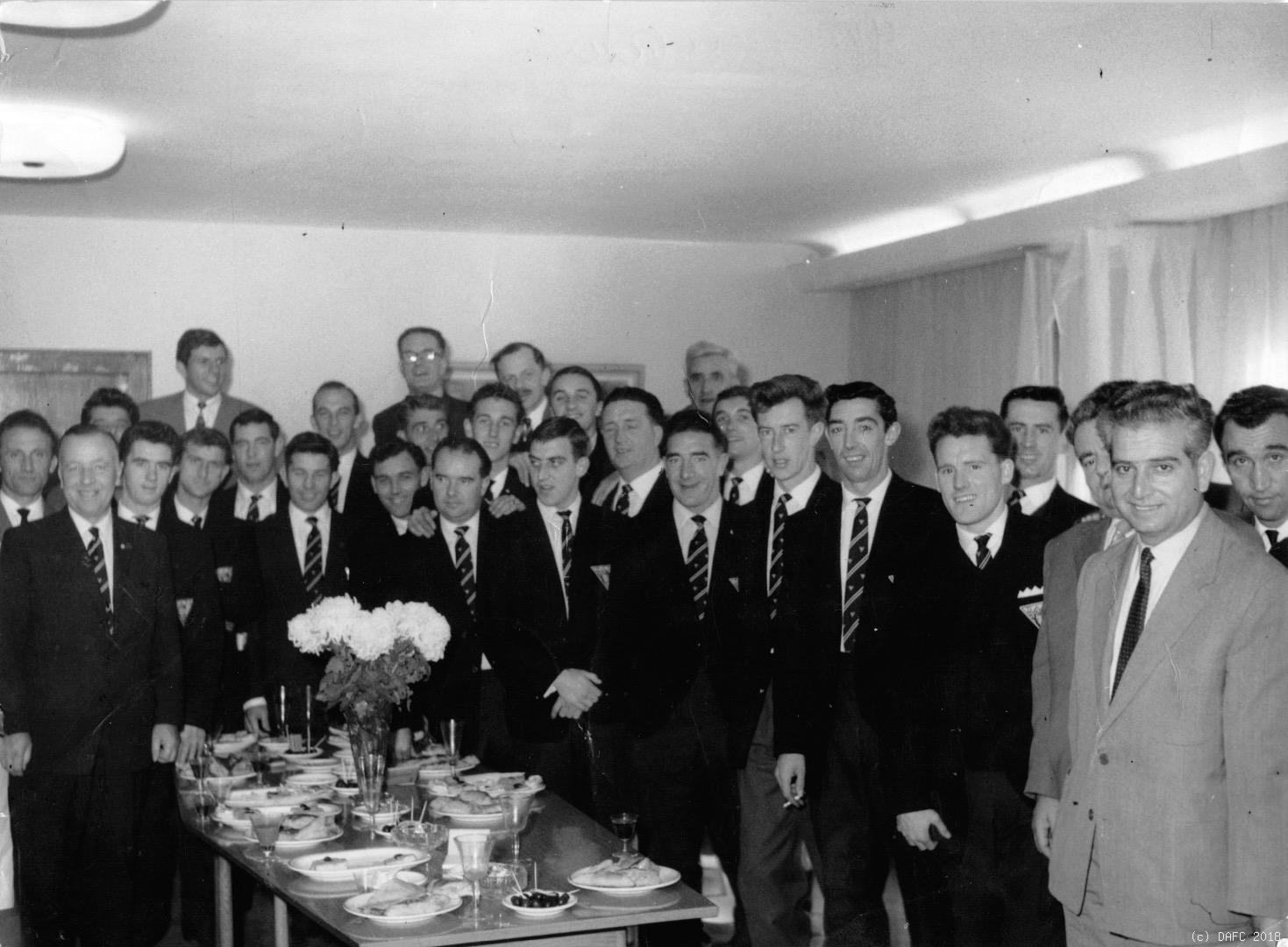
Season 1960-61
During the close season of 1960 Jock Stein gave notice of his intention to foster local talent and he wasted no time introducing the project. Jackie Sinclair and Willie Callaghan were two of the early catches with a number of other promising youngsters attending East End Park when training began in July.
The Club were also on the look out for players capable of stepping straight into the first team. Tommy McDonald became Stein`s first purchase as Leicester City were paid a fee of around £3000 and the big man returned to Leicester a few months later to bring Northern Ireland internationalist Willie Cunningham to Fife.
Cunningham was to become one of the key men in Stein`s defensive plans and his experience at international level would benefit not only the team as it stood but also the up and coming youngsters he was introducing to the club. Jock Stein explained:-
"Leicester manager Matt Gillies was a good personal friend so I knew that Tommy McDonald and Willie Cunningham - two big time players - were wanting back to Scotland. It was also important to Leicester that they did not sell them to another English club where any success could cause them embarrassment. They brought professionalism to Dunfermline, they would endorse the Manager`s view, they were people that players around them could look up to."
The league kicked off with the first peace-time victory at Pittodrie. A home victory over Raith Rovers was followed by a satisfactory draw at Tynecastle. On 1st October Cunningham made his first team debut in the 2-0 win over St Mirren at the same Love Street ground where he had started his senior career. Another important signing in late October was Dan McLindon, inside left signed from Bellshill Athletic and by Christmas Dunfermline sat ninth in the league with 17 points after 17 games, six better than the previous season.
The team could be relax from the fear of relegation this season and when the Scottish Cup campaign got underway on 28th January the Pars had to take on Berwick Rangers at Shielfield Park. This was not the easiest place to win a cup tie as Glasgow Rangers were to find out to their cost in 1967 but goals from Dickson, McLindon (2) and Smith put the Fifers through to meet Stranraer in the next round. A 3-1 win then sent Dunfermline to other end of the country to face Aberdeen.
Never favourites before the game the Pars won through with a great display of attacking football and after going behind to a Brownlee header in the Dons first attack of the tie Stein`s side rattled in the goals to be 3-1 up at half time. No live updates in those days and at home fans first news of the game came via BBC Grandstand`s teleprinter. Imagine the hearts that fell when the printer stamped a three after Aberdeen, only to be revived by the six that followed Dunfermline.
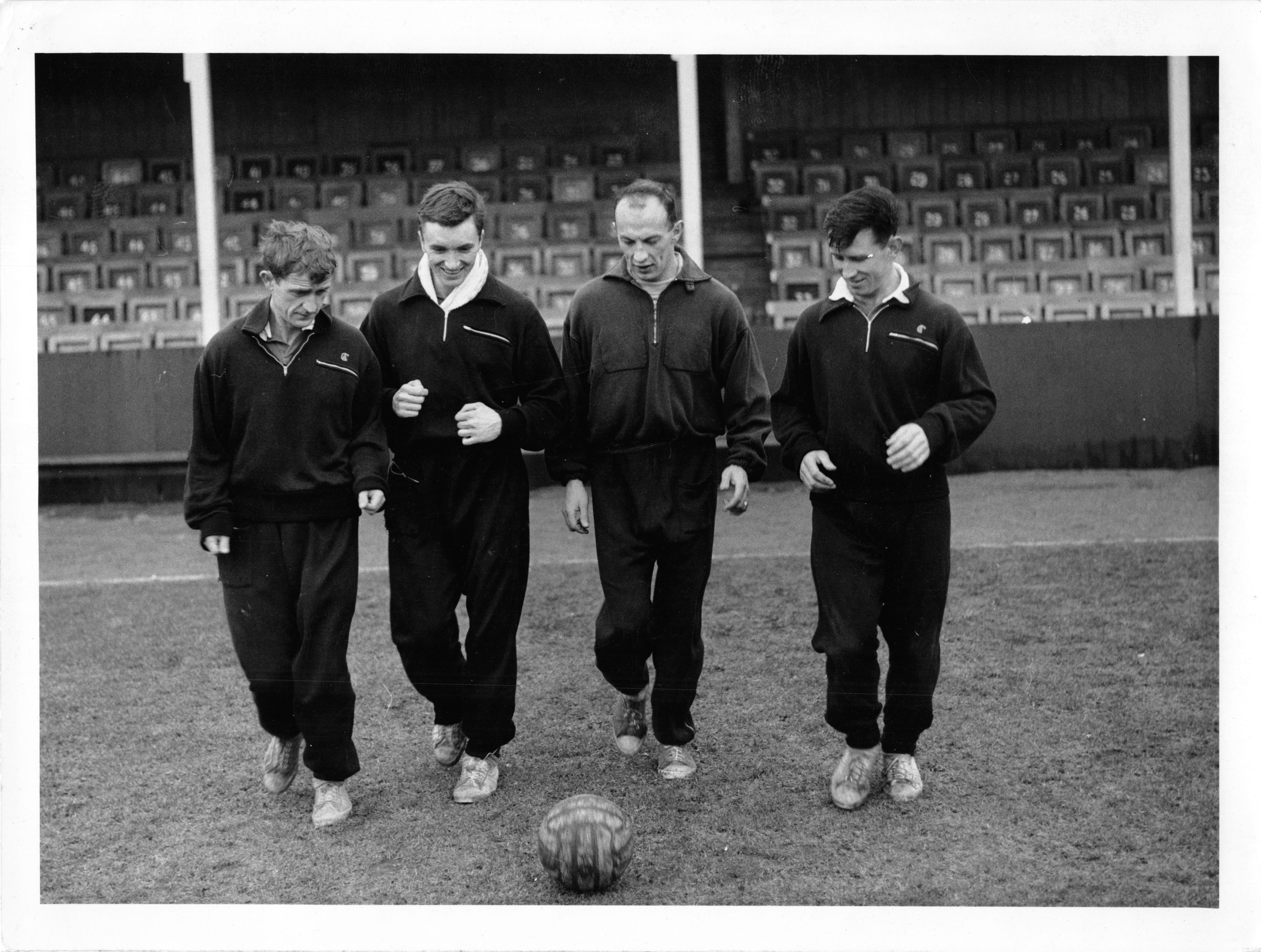
|
THE ROAD TO HAMPDEN | ||||
| 28/01/61 | Berwick Rangers | A | 4-1 | [0-1] Kennedy, [1-1] Dickson, [2-1] McLinden, [3-1] Smith, [4-1] McLinden |
| 11/02/61 | Stranraer | A | 3-1 | [Melrose, Dickson, McDonald |
| 25/02/06 | Aberdeen | A | 6-3 | [0-1] Brownlee, [1-1] Smith, [2-1] Dickson, [3-1] McDonald, [3-2], [4-2] Melrose, [5-2] Peebles, [5-3] Coutts, [6-3] Miller |
| 11/03/61 | Alloa Athletic | H | 4-0 | [1-0] Peebles, [2-0] Peebles, [3-0] McDonald, [4-0] Melrose |
| 25/03/61 | St Mirren | N | 0-0 | |
| 05/04/61 | St Mirren | N | 1-0 | [1-0] Stewart (og) |
It was almost a year to the day since Jock Stein had arrived at East End Park when Dunfermline`s first ever Scottish Cup Semi Final was assured with a four goal home win over Alloa. Opponents in the last four were to be St Mirren and the match was taken to Tynecastle. No goals in the first match, however Dunfermline were happy to see it through to the replay since their centre forward Charlie Dickson was carried off just ten minutes into the second half.
The only goal of the Semi Replay was an own goal scored against his side by the Saints right half Stewart. That took Dunfermline to their first Scottish Cup Final on 22nd April 1961.
On the eve of the Final Tommy McDonald reported sick at East End Park and was taken to hospital with appendicitis. McDonald who would have been a certain starter was out of the Final forcing Stein to switch George Peebles to outside right with Dan McLindon making an unexpected appearance at inside left. Years afterwards Stein insisted that his team should have won the first time around but 12 minutes from time they lost Jackie Williamson with a leg injury. George Miller went to centre half and Harry Melrose dropped back to left half as the Pars held out to take the Final to a Replay the following Wednesday.
For the replay John Sweeney came in at left half and Davie Thomson started in place of the injured McLindon. Goals from Thomson in 67th and Dickson in 88th sealed the Cup win but the hero was the miner from Prestonpans, Eddie Connachan who kept Celtic out for 180 minutes. The Final was watched by over 200,000 fans; 113,328 on the Saturday and 87,660 for the Replay.
| THE 1961 CUP FINAL REPLAY LINE UPS | |
| CELTIC | DUNFERMLINE |
| Frank Haffey Duncan McKay Willie O`Neil Pat Crerand Billy McNeill John Clark Charlie Gallagher Willie Fernie John Hughes Steve Chalmers Alex Byrne |
Eddie Connachan John Fraser Willie Cunningham Ron Mailer George Miller John Sweeney George Peebles Alex Smith Dave Thomson Charlie Dickson Harry Melrose |
| Referee: Hugh Phillips (Wishaw) | |
views: 12,125
